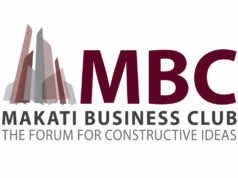ISOC INFRASTRUCTURES, Inc., a unit of ISOC Holdings, Inc., has submitted an unsolicited proposal to the Department of Information and Communications Technology (DICT) to build 25,000 common cellular towers over seven years.
In a briefing at the DICT office on Wednesday, Acting Secretary Eliseo M. Rio, Jr. said it is the first time the agency has received an unsolicited proposal to accredit a common tower provider, and needs to consult its legal department for a thorough review.
“Remember the government will not spend anything here. It will just give permission for the proponent to put up common towers. It will be up to them to convince telcos (to use them),” he said.
Mr. Rio also noted the DICT may accommodate up to two common tower companies, which would also have to submit a proposal and go through the process to which it will subject ISOC Infra.
“Basically, this will be considered initially as a public-private partnership (PPP). The PPP rules set up by our laws will be applicable. This will be subject to a public hearing, and then a Swiss challenge will then be conducted,” the DICT Legal Office said.
Under a Swiss challenge, other companies may submit counter-proposals but ISOC Infra, as original proponent, has the option to match any counter-offers.
Mr. Rio also said unlike other PPP, ISOC Infra will be allowed to operate, maintain and lease its towers should it be accredited by the DICT.
ISOC Infra is chaired by Megawide cofounder Michael C. Cosiquien. During the briefing, he said the company is investing P100 billion over seven years at an estimated P3.5 million to P6 million per tower.
Mr. Rio said the department encourages the sharing of towers, as opposed to the practice of Globe Telecom, Inc. and PLDT, Inc. of building towers for their exclusive use.
Mr. Rio said sharing of towers will be more economical, and hopes a common tower policy will make telecommunications services more affordable.
“This is what we are trying to do — bring down the costs. Because right now, the cost of Globe and Smart is (such) because they are not sharing towers. They are passing on to the consumers the cost of putting up a tower,” he said.
But he added that the two companies are still allowed to build their own tower should they want to, as their franchises from the National Telecommunications Commission (NTC) allow for it. — Denise A. Valdez



